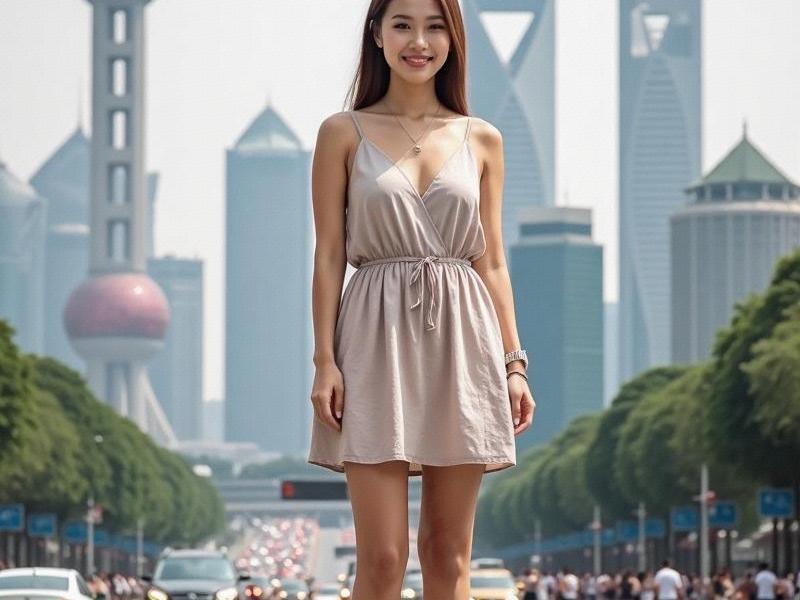The Shanghai Aesthetic: How China's Cosmopolitan Capital Redefines Modern Beauty
⏱ 2025-06-17 00:41 🔖 上海龙凤419
📢0℃

Shanghai has long been celebrated as China's fashion capital, but beneath the glittering skyline lies a more profound revolution - the evolution of the "Shanghai Beauty" as both an aesthetic ideal and cultural phenomenon.
The distinctive Shanghai look combines traditional Chinese features with international flair. Local women have mastered the art of "East-meets-West" beauty - maintaining porcelain skin through ancient herbal routines while experimenting with bold contouring techniques from Korean beauty gurus. This fusion creates what industry insiders call "the Shanghai Face" - delicate yet defined, natural yet polished.
爱上海最新论坛 Nanjing Road's luxury boutiques and Xintiandi's concept stores serve as runways for Shanghai's style vanguards. Unlike Beijing's political sobriety or Guangzhou's commercial pragmatism, Shanghai women embrace sartorial risk-taking. It's common to see qipao-clad grandmothers browsing alongside Gen-Zers in streetwear, all carrying themselves with that unmistakable Shanghai confidence.
The city's beauty industry reflects this diversity. While French cosmetics giants dominate Plaza 66, local brands like Pechoin and Herborist thrive by reinventing traditional Chinese medicine principles. High-tech beauty clinics in Jing'an offer non-invasive procedures tailored to Asian facial structures, attracting clients from across the region.
上海龙凤419贵族
Education plays a surprising role in Shanghai's beauty culture. As China's most educated female population (with 42% holding university degrees), Shanghai women approach beauty as both art and science. Popular WeChat accounts dissect skincare chemistry, while bookstores devote entire sections to beauty anthropology.
上海龙凤419官网 Social media has amplified Shanghai's beauty influence. Homegrown influencers like ShanghaiChic and HuangpuDiary showcase how local women style international trends with Chinese characteristics. Their content - whether demonstrating "tea therapy" facials or accessorizing cheongsams with sneakers - racks up millions of views across Asia.
Yet challenges persist. The pressure to maintain "bai you mei" (fair, slim, beautiful) standards weighs heavily, sparking debates about authenticity versus aspiration. Meanwhile, Shanghai's feminist circles increasingly challenge narrow beauty definitions through campaigns like "My Face, My Choice."
What emerges is a portrait of modern Chinese femininity in its most cosmopolitan form - women who honor jade-like complexions while commanding boardrooms, who pair designer handbags with bicycle-share passes, and who redefine beauty on their own terms against Shanghai's ever-changing skyline.
Shanghai After Dark: How Luxury Entertainment Venues Are Redefining Urban NightlifeDelta Dynamics: How Shanghai's Economic Gravity is Reshaping the Yangtze River Basin"From Water Towns to Smart Cities: The Cultural DNA Reshaping Shanghai's Metropolitan Identity"Greater Shanghai 2025: The Making of a Global MegalopolisShanghai Beauties: A Modern Portrait of Elegance and BeautyNeon Dragon: The Reinvention of Shanghai's Entertainment Club Industry in the Post-Pandemic EraQuantum Leap: How Shanghai and Its Satellite Cities Are Rewriting the Rules of Regional DevelopmentShanghai: A Vibrant City of Diversity and Innovation"Shanghai's New Femininity: How Urban Women Are Redefining Chinese Modernity"The Shanghai Nexus: When One City Becomes Thirty

